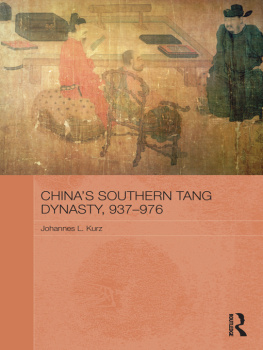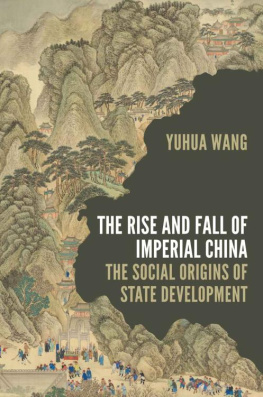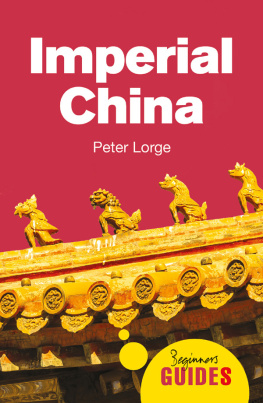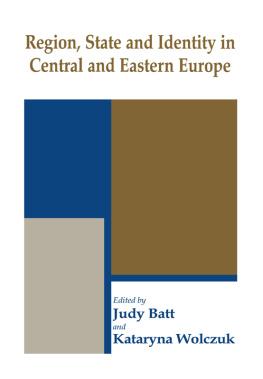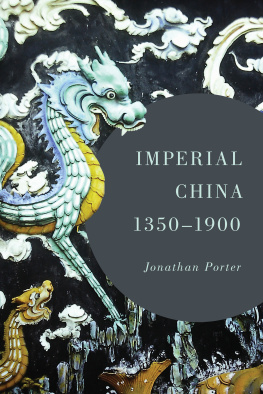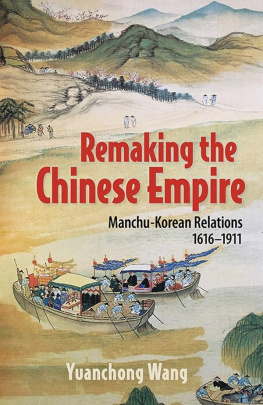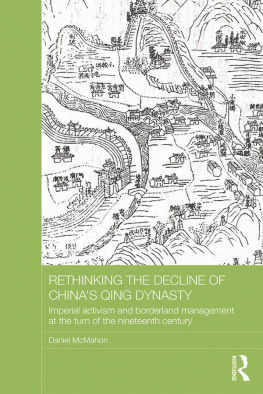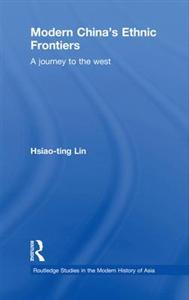
The Collapse of Chinas Later Han Dynasty, 25220 CE
In the Later Han period the region covering the modern provinces of Gansu, southern Ningxia, eastern Qinghai, northern Sichuan, and western Shaanxi was a porous frontier zone between the Chinese regimes and their Central Asian neighbors, not fully incorporated into the Chinese realm until the first century BCE. Not surprisingly the region had a large concentration of men of martial background, from which a regional culture characterized by warrior spirit and skills prevailed. This military elite was generally honored by the imperial center, but during the Later Han period the ascendancy of eastern-based scholar-officials and the consequent increased emphasis on civil values and demilitarization fundamentally transformed the attitude of the imperial state toward the northwestern frontiersmen, leaving them struggling to achieve high political and social status. From the ensuing tensions and resentment followed the capture of the imperial capital by a northwestern military force, the deposing of the emperor, and the installation of a new one, which triggered the disintegration of the empire. Based on extensive original research, and combining cultural, military, and political history, this book examines fully the forging of military regional identity in the northwest borderlands and the consequences of this for the early Chinese empires.
Wicky W. K. Tse is an Assistant Professor in the Department of Chinese Culture at The Hong Kong Polytechnic University
Asian States and Empires
Edited by Peter Lorge
Vanderbilt University
The importance of Asia will continue to grow in the twenty-first century, but remarkably little is available in English on the history of the polities that constitute this critical area. Most current work on Asia is hindered by the extremely limited state of knowledge of the Asian past in general, and the history of Asian states and empires in particular. Asian States and Empires is a book series that will provide detailed accounts of the history of states and empires across Asia from earliest times until the present. It aims to explain and describe the formation, maintenance and collapse of Asian states and empires, and the means by which this was accomplished, making available the history of more than half the worlds population at a level of detail comparable to the history of Western polities. In so doing, it will demonstrate that Asian peoples and civilizations had their own histories apart from the West, and provide the basis for understanding contemporary Asia in terms of its actual histories, rather than broad generalizations informed by Western categories of knowledge.
Rethinking Prehistoric Central Asia
Shepherds, Farmers and Nomads
Claudia Chang
Tropical Warfare in the Asia-Pacific Region, 194145
Kaushik Roy
Early Modern East Asia
War, Commerce, and Culture Exchange
Edited by Kenneth M. Swope and Tonio Andrade
The Collapse of Chinas Later Han Dynasty, 25220 CE
The Northwest Borderlands and the Edge of Empire
Wicky W. K. Tse
For more information about this series, please visit: www.routledge.com/Asian-States-and-Empires/book-series/SE900
First published 2018
by Routledge
2 Park Square, Milton Park, Abingdon, Oxon OX14 4RN
and by Routledge
711 Third Avenue, New York, NY 10017
Routledge is an imprint of the Taylor & Francis Group, an informa business
2018 Wicky W. K. Tse
The right of Wicky W. K. Tse to be identified as author of this work has been asserted by him in accordance with sections 77 and 78 of the Copyright, Designs and Patents Act 1988.
All rights reserved. No part of this book may be reprinted or reproduced or utilised in any form or by any electronic, mechanical, or other means, now known or hereafter invented, including photocopying and recording, or in any information storage or retrieval system, without permission in writing from the publishers.
Trademark notice: Product or corporate names may be trademarks or registered trademarks, and are used only for identification and explanation without intent to infringe.
British Library Cataloguing-in-Publication Data
A catalogue record for this book is available from the British Library
Library of Congress Cataloging-in-Publication Data
A catalog record for this title has been requested
ISBN: 978-1-138-69239-8 (hbk)
ISBN: 978-1-315-53233-2 (ebk)
Typeset in Times New Roman
by Apex CoVantage, LLC
For my mentors,
who taught me how to dedicate myself to intellectual pursuits.
This book would not have been possible without the help and generosity of many mentors, friends, and colleagues. For their insight, inspiration, and unwavering support, I am most indebted to Professors Paul R. Goldin, Arthur Waldron, and Lynn Hollen Lees my academic advisors while I was working towards a doctorate at the University of Pennsylvania. Professor Lai Ming-chiu of the Chinese University of Hong Kong and Professor Chu Hung-lam of the Hong Kong Polytechnic University have provided me unfailing support and guidance since I was still an acolyte finding the way of studying Chinese history. I also owe an unpayable debt to the late Professors Hok-lam Chan and Tsang Shui-lung, who initiated me to pursue an academic career and provided constant help and encouragement before their untimely demise. I would not have been able to embark on the academic journey without the care given by these mentors, to whom I have dedicated this book.
Throughout the research and writing process, I have received financial support from the Early Career Scheme (project no. 25608215) offered by the Research Grants Council (RGC), the Government of Hong Kong Special Administrative Region, and the Start-up Fund for New Recruits provided by the Hong Kong Polytechnic University. My colleague Professor King-Fai Tam took time from his own work to read my manuscript and give constructive critiques. In addition, my former research associate Zhang Fanjing, on whom I have relied heavily, and former research assistants Chow Yuen Man, Deng Chen, and Guo Feng have helped me in various ways so that I could concentrate on preparing this book. I would like to express my gratitude to all of them.
I must also express my appreciation to Peter Lorge of Vanderbilt University for kindly admitting my work to the series of Asian States & Empires, which already included the military historians whose works I have long admired. And it has been a great pleasure to work with Peter Sowden and Leela Vathenen at Routledge, Kate Fornadel of Apex Covantage, as well as their colleagues, for their patience and swift help have made the publication of this work go smoothly. Needless to say, any remaining mistakes in this work are my sole responsibility.
Finally, I would like to thank my friends Li Yuk Fai, Jenny Tse, Jimmy T. C. Ngai, Stephen Mak, Gary Ng, Chan King Yeung, Dr. Leung Wai Kei, and Dr. Cai Yanchuan, for their friendship and curiosity of my works encourage me to move forward. I am also grateful to my mother for her love and support. Along the way, my greatest debt is to Daai Jan , whose affection, humor, and tolerance preserve my life.


